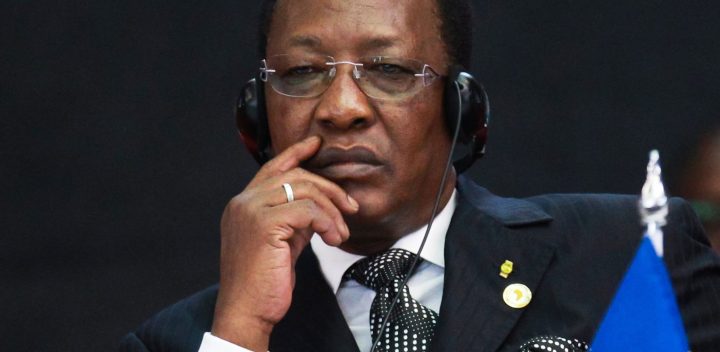ISS TODAY OP-ED
Peacemakers in Chad may be forced to prepare for war

Despite committing to reconciliation, Chad’s transitional government is prioritising military investments and security cooperation with foreign countries.
After the death of president Idriss Déby in April 2021, Chad started a transition process in which interim authorities committed to reconciliation and peace. But slow progress and an increased focus on military and security cooperation with external actors cast doubt on whether this commitment is genuine. It also hampers the possibility of ending the military’s dominance — a feature in Chad since the first military coup in 1975.
The initial 18-month transition period was extended to 24 months following the Inclusive and Sovereign National Dialogue (Dnis) in October 2022. Reconciliation remains incomplete and precarious, despite the Dnis and the Doha agreement between the transitional government and rebel movements signed in August 2022.
The government is responsible for the national reconciliation roadmap and has appointed a minister to oversee its implementation. But other actions contradict this commitment, notably the heavy repression of protesters in October last year and authorities’ belligerent tone in justifying the crackdown.
The 2023 national budget, which was meant to prioritise implementation of the Dnis, shows a more than 20% increase in defence and security allocations. Human resources for this sector are set to expand by 245%. This contrasts starkly with the 18% decrease in provisions for education. Though allocations to productive sectors including infrastructure also went up, social sectors such as education and health didn’t.
Chad’s government has largely focused on the needs of the security services, particularly the military, and has signed numerous security cooperation agreements in the Middle East. Since the start of 2023, its foreign diplomacy has been dominated by defence and security issues. In January, the country signed a memorandum of understanding with Saudi Arabia on cooperation, including defence, training, material and technical support. In Israel, where Chad opened an embassy in February, similar help was discussed.
The country does face various security threats, with rebellions and armed gangs along the northern Libyan and Sudanese borders. At the same time, Boko Haram remains active in the west, especially in the Lac province. This is compounded by persistent talk of a new rebellion brewing in the south, with the Central African Republic’s northern area as its base. There are also rumours that the government faces a possible coup by Chadian rebels supported by the Wagner private military company.
Despite these issues, Chad’s military investments are disproportionately high and show its inability to break from a military-dominated focus. Political actors’ capacity to violently impose themselves or sideline their opponents remains a primary means of gaining and staying in power. This governance culture could seriously undermine the reconciliation agenda, and lowers the prospects of a return to civilian constitutional rule.
The concord between the political groups that supported the transition in the first phase is gradually crumbling. At the same time, early opponents’ positions are hardening, with some evoking prospects as radical as self-determination. Apart from the Sant’Edigio community’s efforts to bring the rebel movements who didn’t sign the Doha agreement into the process, attempts at rapprochement between the authorities and opposition political parties seem to have stalled.
An independent framework for monitoring and evaluating the Dnis’ resolutions and recommendations and a steering committee to track its implementation were set up in December 2022. The framework is led by the Secretary-General of the Presidency Gali Ngothé Gatta, and the steering committee by the transitional Prime Minister Saleh Kebzabo.
In January, a national commission in charge of organising the constitutional referendum and an ad hoc committee for drafting the constitution were set up. However, their composition, inclusiveness and neutrality have been questioned even by those who actively supported the transition and the Dnis.
The current dynamics are reminiscent of Chad in the early 1990s. Despite a solid national conference and roadmap for a peaceful and open political future, the country slid back to a high-handed regime, with many rebellions and a massive investment of its oil revenues in the military. As a result, social and infrastructural projects remained on hold.
In this second phase of the transition, there’s a danger that the emphasis on defence, the lack of vigorous political debate, and the hardening of political positions will keep the country military-focused.
The need for stability after Déby’s sudden death was used to justify the support of international actors for a military-led transition. But efforts now need to be reoriented towards national reconciliation. All parties — the transitional authorities, political actors and rebels in discussion with Sant’Egidio — share the responsibility for breaking this cycle through more nuanced and moderate positions.
The Economic Community of Central African States (Eccas) and the African Union (AU) have been key to the transition from the start. Through its commission of inquiry into the October 2022 demonstrations and repression, Eccas could ease tensions by clarifying what happened. The AU, through its Peace and Security Council and special envoy on Chad, should set up a mediation mission to calm tensions and find common ground.
These initiatives are vital for a more open and inclusive process that prevents Chad from returning to square one. DM
Remadji Hoinathy, Senior Researcher, Central Africa and Great Lakes, Institute for Security Studies (ISS).
Research for this article was funded by Irish Aid and the Bosch Foundation.
First published by ISS Today.



















 Become an Insider
Become an Insider
Comments - Please login in order to comment.